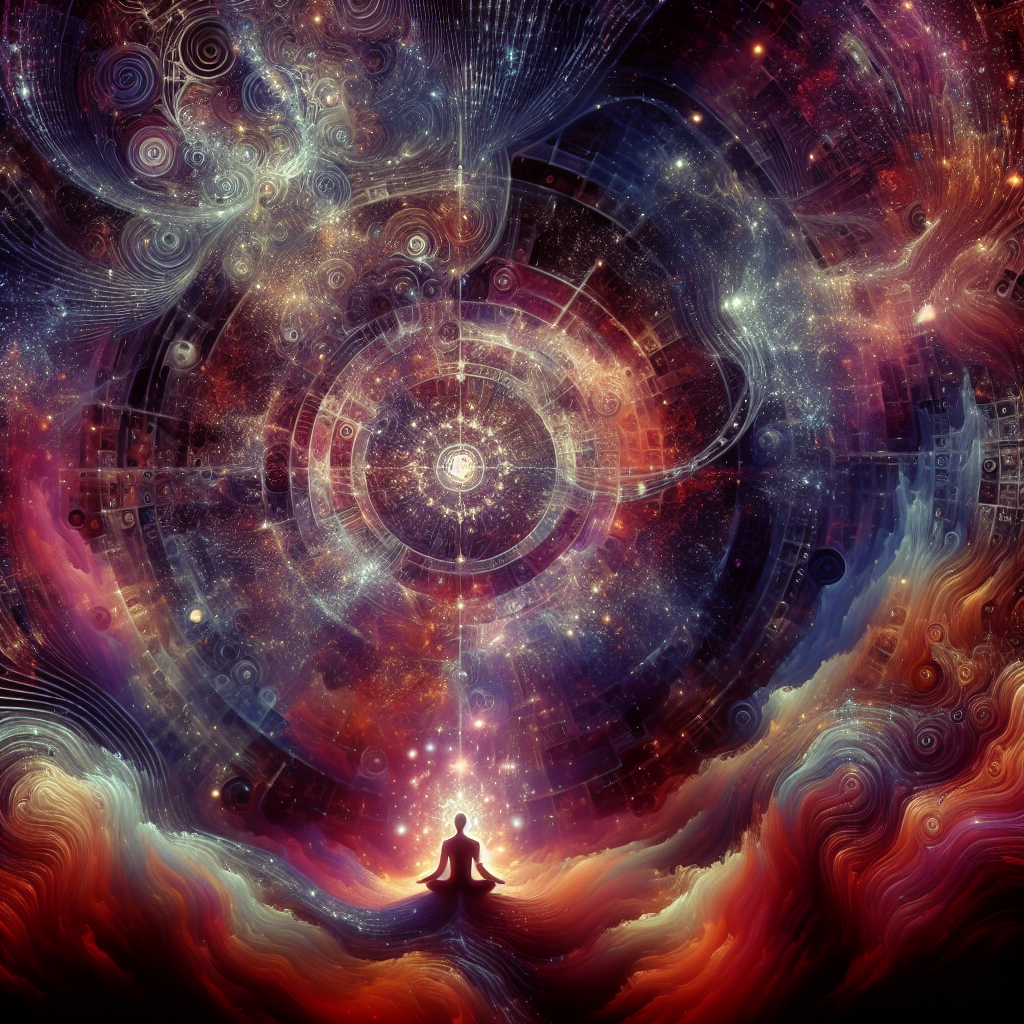Spiritual Devotional about Consciousness
Awakening to the Divine within: Embracing Consciousness with Joy and Faith
Greetings, beloved readers! Today, we embark on a delightful journey into the profound essence of consciousness and its divine interplay with our spiritual walk. Consciousness, in its simplest form, is our awareness — the gentle stirring of our inner being that bridges the gap between the human experience and the divine presence within us. As we explore this beautiful concept, let us draw wisdom and inspiration from the sacred scriptures, reminding us of the incredible potential and joy in embracing our consciousness with faith.
In the beginning, God breathed life into us, granting us not just physical form, but consciousness — a unique gift that allows us to experience, reflect, and connect with the world. Genesis 2:7 paints a vivid image of this sacred moment: "Then the Lord God formed a man from the dust of the ground and breathed into his nostrils the breath of life, and the man became a living being." Here, we are reminded of the divine spark within each of us, a spark that ignites the flame of awareness and reason.
As we grow in consciousness, we awaken to the gentle whisper of God’s presence in every moment. It is as if our soul is tuning into a divine frequency, opening our hearts and minds to the endless possibilities that lie ahead. Romans 12:2 encourages us to cultivate this transformative awareness: "Do not conform to the pattern of this world, but be transformed by the renewing of your mind." Through consciousness, we begin to perceive the world not as it dictates us to see, but as God invites us to envision — a realm where love, compassion, and grace abound.
Consciousness is not just an internal compass; it is our connection to one another, to creation, and to God. In Matthew 22:37-39, Jesus beautifully sums this up: "’Love the Lord your God with all your heart and with all your soul and with all your mind.’ This is the first and greatest commandment. And the second is like it: ‘Love your neighbor as yourself.’" When we allow our consciousness to be guided by these commandments, we embrace a life of love and unity, seeing each moment as an opportunity to reflect God’s love.
In our daily walk, consciousness empowers us to make choices that align with God’s purpose for us. It lifts the veil of ignorance, enabling us to appreciate the beauty in God’s creation and the blessings that surround us. With a conscious heart, we become more attuned to the needs of others, resonating with empathy and compassion. We find ourselves living with intention, making each action, word, and thought a testament to our faith and our Creator.
Beloved, let us nurture our consciousness with joy, knowing that in awareness, we draw closer to God’s heart. Through prayer and meditation on the Word, we refine our conscious experience, allowing God’s wisdom to shine through us. Psalm 46:10 gently invites us, "Be still, and know that I am God." In stillness, our consciousness finds peace and purpose, rekindled by the eternal flame of divine love.
As we journey together in this sacred dance of awareness, let us lift our spirits and embrace the beauty of our conscious connection to the divine. Let our lives be a testimony of faith, hope, and love, forever celebrating the wondrous gift of consciousness bestowed upon us by our loving Creator.
May your days be filled with joy and your heart with understanding, as we awaken to the divine within and the boundless love of God.
Blessings and light,
[Your Name]
Explore and dig up answers yourself with our BGodInspired Bible Tools! Be careful – each interaction is like a new treasure hunt… you can get lost for hours 🙂
Q&A about Consciousness
Certainly! Here’s a Q&A on the topic of consciousness:
Q1: What is consciousness?
A1: Consciousness is the state of being aware of and able to think about one’s own existence, thoughts, feelings, and surroundings. It encompasses subjective experiences, perception, and awareness. Philosophers, neuroscientists, and psychologists all have slightly different definitions and frameworks for understanding consciousness due to its complex and multifaceted nature.
Q2: How do scientists study consciousness?
A2: Scientists study consciousness using a variety of approaches, including neuroimaging techniques like fMRI and EEG to observe brain activity, psychological experiments to understand perception and attention, and computational models to simulate aspects of conscious experience. Comparative studies across different species and studies of altered states of consciousness, such as sleep or anesthesia, also provide insights.
Q3: What are some theories about the nature of consciousness?
A3: Several prominent theories attempt to explain consciousness:
-
Integrated Information Theory (IIT): Proposes that consciousness arises from integrated information processes in the brain, with the level of consciousness corresponding to the system’s capacity to integrate information.
-
Global Workspace Theory: Suggests that consciousness involves broadcasting information to multiple cognitive processes within a "global workspace" in the brain.
-
Higher-Order Theories: Argue that consciousness results from the brain’s higher-order representations of first-order sensory inputs.
-
Quantum Theories: Some propose that quantum processes might be involved in consciousness, although these ideas are more speculative and controversial.
Q4: Can consciousness be explained entirely by physical processes in the brain?
A4: This is a matter of ongoing debate in the fields of philosophy and neuroscience. Materialist explanations suggest that consciousness can be fully explained by physical processes in the brain, while dualist viewpoints argue that consciousness might involve non-physical phenomena. The "hard problem" of consciousness, a term coined by philosopher David Chalmers, refers to the challenge of explaining how and why we have subjective experiences.
Q5: Are non-human animals conscious?
A5: Many scientists and philosophers believe that non-human animals, particularly mammals and birds, possess some level of consciousness, as they demonstrate clear signs of awareness and subjective experience. However, the extent and nature of animal consciousness is still under investigation, and there is ongoing research to better understand their cognitive and emotional experiences.
Q6: What role does consciousness play in human cognition and behavior?
A6: Consciousness allows humans to reflect, plan, and make decisions based on complex considerations. It plays a crucial role in reasoning, attention, understanding social dynamics, and creating a sense of self and identity. It also allows individuals to experience emotions, learn from past experiences, and anticipate future scenarios.
Q7: How does altered states of consciousness impact human perception and behavior?
A7: Altered states of consciousness, such as those induced by sleep, meditation, hypnosis, or psychoactive substances, can significantly affect perception, cognition, and behavior. They may lead to changes in sensory perception, time distortion, emotional intensity, and thought patterns. Understanding these states can provide insights into the workings of the normal waking consciousness.
If you have more questions about consciousness or specific aspects you’d like to explore, feel free to ask!


